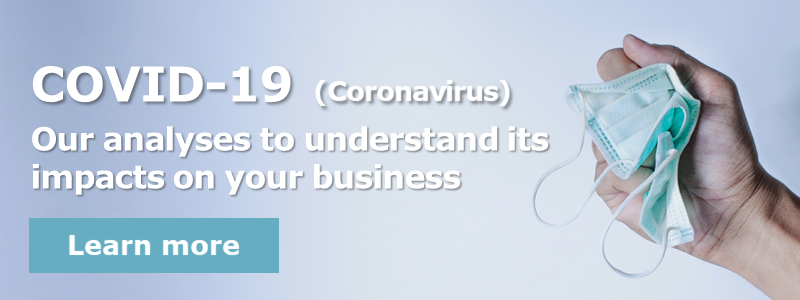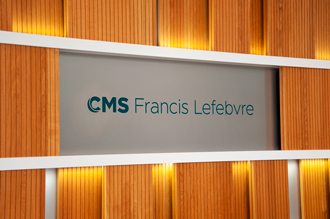On 27 March, Bruno Le Maire, the French Minister of Economy and Finance, announced that if companies asked for government aid, they could not pay dividends. Theses provisions, announced verbally, were clarified by the Ministry of Economy and Finance on 2 April 2020, in the form of a Q&A, in a document entitled “Liability commitment by large companies benefiting from cash-flow support measures”.
The companies concerned are “large companies”, i.e. independent companies or a group of several related companies which, during the last financial year ended, employed at least 5,000 employees or had a consolidated turnover of more than €1.5 billion in France. If one of these companies requests an extension of tax and social security deadlines or a government-backed loan, it therefore undertakes (i) not to pay dividends in 2020 to its shareholders in France or abroad (except entities with a legal distribution obligation) and (ii) not to buy back shares during 2020.
If the company fails to comply with this commitment, the social security contributions or deferred tax payments will have to be paid immediately and the loan granted to the company will cease to benefit from government backing.
Dividend distribution
The undertaking not to pay dividends includes sums whose distribution is decided on by the annual ordinary general meeting, including distribution in kind of shares, as well as all other forms of distribution in cash or in shares, particularly interim dividends and any exceptional distributions of reserves occurring during an extraordinary held general meeting.
However, the companies remain eligible for cash support mechanisms if they decided to distribute dividends or interim dividends before 27 March 2020. The date of the decision by the competent corporate body to distribute the dividends or interim dividends therefore needs to be taken into account. For example, in the case of a dividend distribution in a limited company, the date of the ordinary annual general meeting or extraordinary general meeting which agreed on the principle (and amount) of the dividend distribution must be taken into account, while for the distribution of an interim dividend in a limited company, the date on which the board of directors (Conseil d’administration) (or the management board (Directoire)) met and decided on the principle (and amount) of the interim dividend payment must also be taken into account. If the decision of the competent corporate body is made after 27 March 2020, the company ceases to be eligible for cash-flow support, unless the decision is made pursuant to a legal distribution obligation and if the amount distributed is strictly limited to the amount required under that legal obligation (e.g. SPPPICAVs).
Intra-group distribution
It is specified that the distribution of intra-group dividends is possible if it financially supports a French company, particularly to enable it to meet its contractual commitments to its creditors (dividend distributions made to French companies by foreign companies in the group do not affect requests for aid by those French companies).
We understand that this exemption – and therefore from a strict interpretation – applies to LBOs (leveraged buy-outs), for example, where the target company distributes its excess cash to its new holding company to allow it to pay instalments on the loan taken out to finance the LBO.
Is this the only exception? The word “notably” in the Q&A leads us to assume not. Even so, in view of the potential penalties, the use of this exception should in our opinion be subject to firm guidelines. In will be important for operational staff to provide proof of proper use of the exception, by giving reasons for the distribution decision, for example in the report presented to the general meeting or in the deliberations of the board of directors, and by emphasizing the fact that the ultimate objective of the proposed distribution of dividends or interim dividends “is to financially support a French company”.
It is worth noting in this respect that “sharing the profit” is an intrinsic purpose of forming a company (see Article 1832 of the French Civil Code) and the additional condition stipulated by the new measures assumes that the company making the distribution is aware of the ultimate purpose of the funds paid to its shareholders as dividends or interim dividends. Furthermore, it should be noted that this exception exclusively benefits French companies: this “nationalist” limitation on beneficiaries risks raising a difficulty, particularly in terms of discrimination: under European law, should the benefit of this provision be extended to all companies established in a European Union country? This is particularly the case since the Minister specified that distributions made by the group's foreign companies in favour of French entities would not affect the aid. At a time when solidarity is being shown at European Union level, this lack of reciprocity, at least within the European Union, is not without criticism.
In view of these uncertainties regarding interpretation, an approach could be made to the French Finance Ministry – in the form of a rescript (tax ruling) for example – to obtain confirmation, ideally in advance, that the proposed distribution would benefit from the new rules. It remains to be seen whether the Finance Ministry would be able to respond to such requests within a time period compatible with companies’ cash-flow requirements.
Share buybacks
Share buybacks for the purpose of share allocations to employees or resulting from performance of a legal commitment made prior to 27 March 2020 (for example, in relation to a transferable security giving access to share capital) are possible. Share buybacks in respect of liquidity agreements concluded before 27 March 2020 and not subsequently amended are similarly permitted. Share buybacks within the framework of an external growth operation are also authorised if they are necessary and if the external growth operation was the subject of a legal undertaking by the company prior to 27 March 2020.
On the other hand, unless motivated by losses, share buybacks carried out to achieve a share capital decrease for financial management purposes are not permitted by companies requesting cash-flow support.
Non-compliance with commitments by the company
In the event of non-compliance with commitments, the company will not be able to benefit from a government guarantee for any loan it concludes with its bank. The Minister will not sign an individual decree allowing that guarantee to be granted and it is stipulated that the bank would be entitled to require the company to repay the entire principal amount. In that situation, a company which has requested an extension of tax and social security deadlines would also be subject to late-payment supplements applicable in the event of non-payment of taxes and contributions, in accordance with tax and social security legislation. It would not be able to benefit from a deadline extension for the deferred instalment and would be required to settle the unpaid sums immediately. Furthermore, directors’liability could also be incurred, on the grounds of mismanagement for example.
Insight: impacts of the Coronavirus outbreak
Our law firm provides you with legal assistance to understand all Covid-19 (Coronavirus) impacts on your business. Discover our special Insight below.
Find more about our law firm:
Our law firm is a leading international business law firm. Its deep roots, unique positioning and highly recognised expertise enables it to deliver innovative, high value-added solutions in tax, business, corporate and labour law.














Social Media cookies collect information about you sharing information from our website via social media tools, or analytics to understand your browsing between social media tools or our Social Media campaigns and our own websites. We do this to optimise the mix of channels to provide you with our content. Details concerning the tools in use are in our privacy policy.